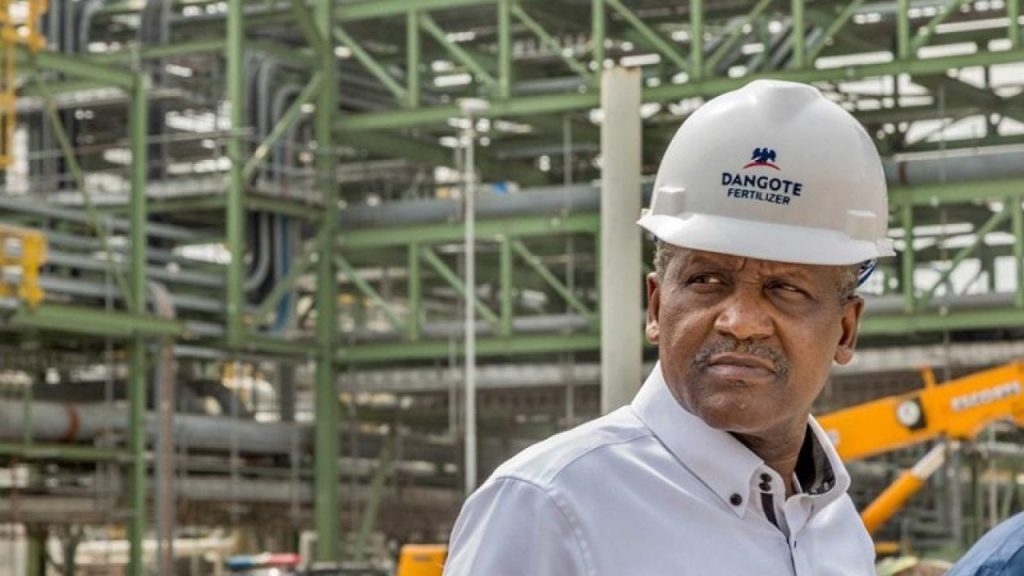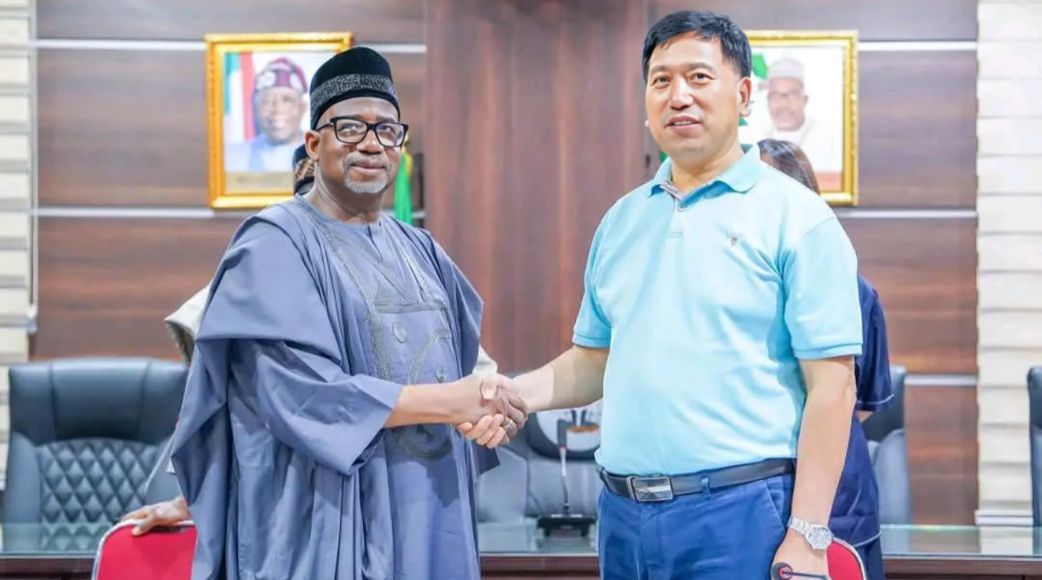The Federal Government, through the Nigerian Midstream and Downstream Petroleum Regulatory Authority (NMDPRA), is awaiting updated reports to determine the actual sulphur content of diesel produced by the Dangote refinery. This follows Dangote’s rebuttal of claims about producing inferior fuel.

NMDPRA’s Stance and Investigation
George Ene-Ita, NMDPRA’s spokesperson, stated in an interview with The PUNCH on Sunday that the agency has fulfilled its duties and will not engage in media disputes. This follows NMDPRA Chief Executive Farouk Ahmed’s assertion that Dangote’s diesel contains more sulphur than imported diesel. Ene-Ita mentioned that about 15 engineers and scientists are stationed at the Dangote refinery, and their new report on the refinery’s sulphur content is expected on Monday.
The PUNCH previously reported Ahmed’s allegations about the high sulphur content in Dangote’s diesel. In response to Dangote’s claims that NMDPRA has been issuing licenses for the importation of substandard fuel, Ahmed argued that it was Dangote’s diesel that had higher sulphur content.
Claims of Unlicensed Operations
Ahmed also noted that although the Dangote refinery has been selling diesel and aviation fuel in Nigeria for several months, it is still in the pre-commissioning stage and not yet licensed. He emphasized that Nigeria should not rely solely on the Dangote refinery for its fuel supply, as this could create a monopoly and pose risks to energy security.
Sulphur Content Concerns
Ahmed pointed out that the quality of diesel (AGO) in terms of sulphur content currently meets the West African requirement of 50 parts per million (ppm). He claimed that the diesel produced by Dangote and some modular refineries has a sulphur content ranging from 650 to 1,200 ppm, which is significantly higher than imported diesel.
Dangote’s Response
During a tour of the refinery led by the Speaker of the House of Representatives, Hon. Tajudeen Abbas, Dangote countered these claims, asserting that the diesel produced at his refinery is of superior quality. Tests conducted on samples from the Dangote refinery and two other petrol stations showed that Dangote’s diesel had a sulphur content of 87.6 ppm, while the other samples had levels exceeding 1,800 ppm and 2,000 ppm.
Quality Assurance and Transparency
Dangote emphasized the superior quality of his diesel and challenged the NMDPRA to conduct impartial tests. He highlighted the transparency of his operations and urged the regulator to demonstrate its own testing capabilities. Dangote argued that the regulator’s actions were undermining the market rather than protecting it.
Importation and Local Refining Capacity
Meanwhile, the Dangote refinery is negotiating with Libya and Angola for crude supplies, addressing domestic shortages caused by theft, pipeline vandalism, and low investment. Dangote has been importing crude from Brazil and the United States to maintain operations. Devakumar Edwin, a senior executive at Dangote, mentioned that international traders and oil companies are significant buyers of Dangote’s diesel, much of which is exported.
Market Impact and Regulatory Concerns
Nigerians and marketers have expressed concerns over the ongoing controversies, particularly regarding the country’s reliance on imported refined petroleum products. Edwin accused the NMDPRA of granting licenses for the importation of substandard diesel, leading the Dangote refinery to focus on foreign markets. He emphasized that the refinery meets international standards and complies with stringent environmental regulations, enabling it to export products globally.
Calls for Regulatory Support
Edwin urged the Federal Government and regulators to support the refinery, which has significantly contributed to the economy by exporting more than 3.5 billion litres of diesel and aviation fuel. He criticized the NMDPRA’s decision to issue import licenses despite the refinery’s capability to produce sufficient fuel for the Nigerian market.
Public and Legislative Reactions
Some Nigerians have called on President Bola Tinubu to dismiss the NMDPRA chief executive for undermining local refineries. The House of Representatives has also announced an investigation into the allegations.
Conclusion
The Federal Government and the NMDPRA are closely monitoring the situation, with updated reports expected soon to clarify the quality of diesel produced by the Dangote refinery. As the controversy unfolds, the focus remains on ensuring the highest standards for fuel quality and supporting local refining capacity.
Read also:
- Paris Olympic 2024: Top Players to Watch
- My Friend Who Warned Against Investing in Nigeria is Now Taunting Me – Dangote
- President Tinubu Applauds Dr. Fola David for Guinness World Record Achievement
- US Election: Rapper Cardi B Endorses Kamala Harris for President
- Cardi B Responds to Criticism About Her Marriage to Offset
- Nigerian Lawyer Advises Mike Ejeagha to Reject N2M Gift and Sue Brain Jotter
- Priscilla Ojo’s Twerking Video with Tanzanian Singer Jux Creates Online Buzz
- What I Achieved During My Break from Acting – Actor Emeka Ike
- Nigeria’s Future: Inspired by Dangote’s Vision
- Davido Lights Up the Stage at Saraki’s Mother’s Burial
- Yul Edochie Criticized for Discouraging Protests Amid Economic Hardship
- Actor Chidi Mokeme’s Love Poem to Kate Henshaw on Her 53rd Birthday
- Paris 2024: Rihanna Announces Partnership with Olympic and Paralympic Games
- ‘I’m turning into full robot with no emotion’ – Kim Kardashian
- Nigerian Content Creator Egungun Of Lagos Takes Delivery of His Benz GLE 300
- Nigerian Woman Astonished as Wealthy Friend Offers Her a Tiny Slice of Yam During Visit
- Thief Caught and Forced to Dance to Hit Songs While Chained in Viral Video
- Nigerian Artist Goes Viral for Creating Wizkid Portrait with Paint and Bare Hands
- GWR: Oluwole Sets New World Record for 75-Hour Video Game Marathon



